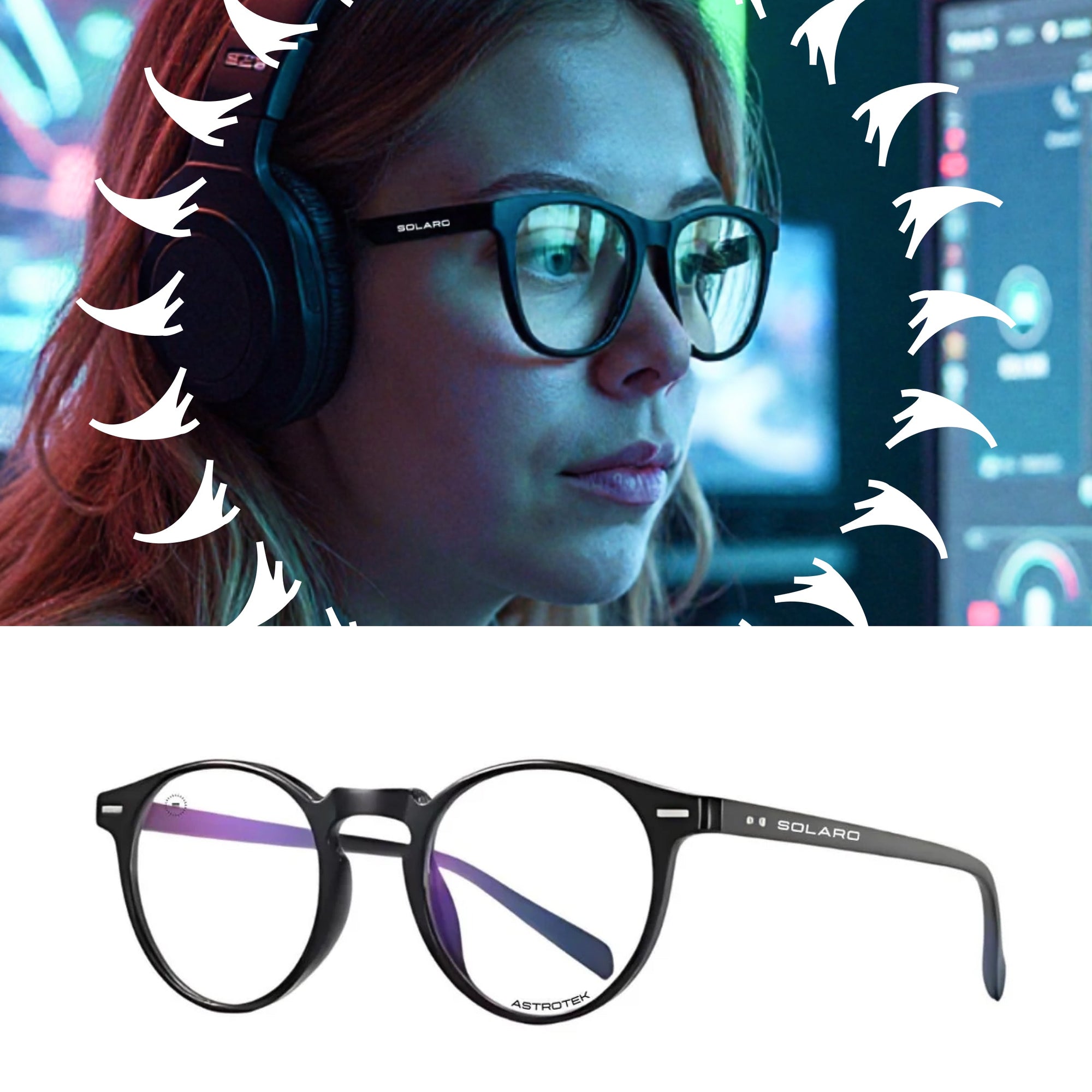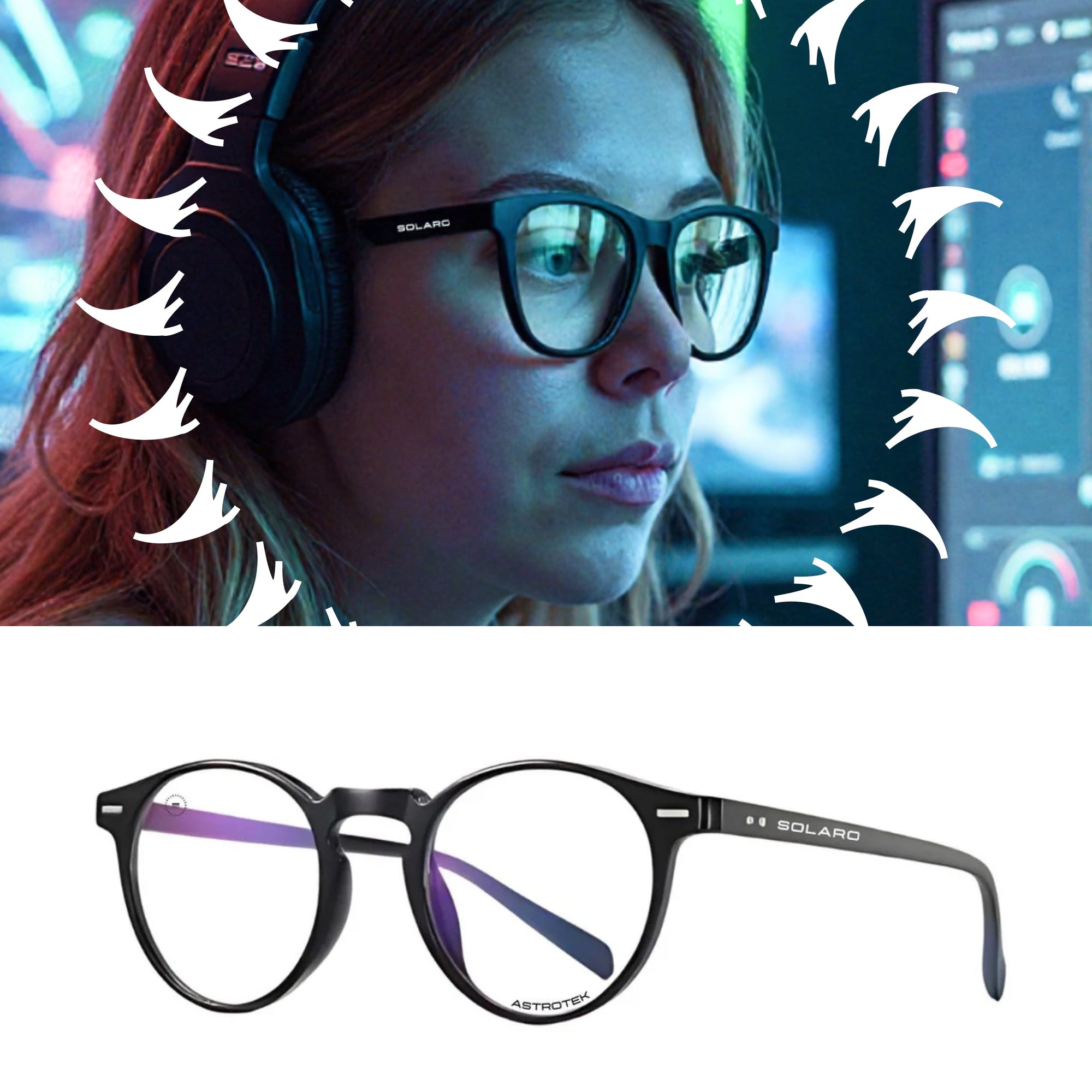In our digital age, screens are everywhere—smartphones, tablets, laptops, TVs, and LED lighting dominate our daily routines. Whether we’re working, gaming, or just unwinding with a show, we’re constantly exposed to blue light. While this might not seem like a big deal, research shows that blue light exposure—especially at night—can severely impact sleep quality.
For athletes, students, gamers, and professionals, getting quality sleep is essential for performance, recovery, and mental clarity. However, if you often struggle with falling asleep, wake up feeling groggy, or experience frequent eye strain, blue light may be to blame.
Luckily, there’s a solution: sunglasses with blue light protection. These innovative lenses help block excessive blue light, protect your eyes, and promote better sleep patterns. In this comprehensive guide, we’ll explore:
✅ What blue light is and how it affects sleep
✅ Why sleep is crucial for peak performance and health
✅ How blue light-blocking sunglasses improve sleep quality
✅ Additional strategies to reduce blue light exposure and sleep better
By the end of this blog, you’ll understand why blue light protection is a game-changer for anyone looking to sleep better, feel more energized, and perform at their best.
What Is Blue Light and Why Should You Care?
Blue light is a high-energy, short-wavelength light that comes from both natural and artificial sources. The sun emits blue light naturally, which helps regulate our circadian rhythm (our body’s internal sleep-wake cycle). However, modern technology has dramatically increased our exposure to artificial blue light, which can have negative effects—especially at night.
Where Does Blue Light Come From?
- Sunlight (natural source, beneficial during the day)
- LED and fluorescent lights (found in homes, offices, and schools)
- Computer monitors, tablets, and TVs (major sources of nighttime exposure)
- Smartphones and gaming consoles (often used right before bed)
The Good and the Bad of Blue Light
- 🌞 During the day: Blue light boosts alertness, energy, and mood, helping us stay awake and focused.
- 🌙 At night: Too much blue light exposure suppresses melatonin production, making it harder to fall asleep and get deep, restorative rest.
So while blue light isn’t inherently bad, too much of it—especially at the wrong times—can seriously disrupt our sleep and overall health.
How Blue Light Disrupts Sleep
Blue light affects sleep by interfering with melatonin production and circadian rhythm regulation. Here’s how:
1. Suppresses Melatonin Production
Melatonin is the hormone responsible for making you feel sleepy. Normally, melatonin levels increase in the evening, signaling to your body that it’s time to wind down. However, exposure to blue light at night tricks your brain into thinking it’s still daytime, delaying melatonin release.
2. Disrupts the Circadian Rhythm
Your circadian rhythm is your body’s internal clock, regulating when you feel awake and when you feel sleepy. When blue light exposure throws off this rhythm, you may experience:
✔ Difficulty falling asleep
✔ Waking up in the middle of the night
✔ Feeling groggy and unrefreshed in the morning
3. Reduces Deep Sleep and REM Sleep
Even if you manage to fall asleep after screen exposure, blue light can still affect sleep quality. Studies show that excessive nighttime blue light exposure:
- Reduces deep sleep (important for muscle recovery and memory processing)
- Decreases REM sleep (crucial for cognitive function and emotional health)
The result? You wake up feeling tired, sluggish, and less prepared for the day ahead.
Why Sleep Is Essential for Peak Performance
Whether you’re an athlete, gamer, student, or working professional, sleep is one of the most critical factors for performance and health.
1. Improves Physical Performance
For athletes, sleep is just as important as training and nutrition. Studies show that well-rested athletes experience:
✔ Faster reaction times
✔ Better coordination and accuracy
✔ Quicker muscle recovery and injury prevention
2. Enhances Cognitive Function
A lack of sleep affects memory, problem-solving, and decision-making. This can hurt:
✔ Athletes who need quick reflexes and strategy
✔ Gamers who rely on fast thinking and coordination
✔ Students and professionals who need focus and creativity
3. Supports Emotional and Mental Health
Poor sleep is linked to stress, anxiety, and mood swings. Long-term sleep deprivation can lead to burnout, depression, and reduced motivation.
4. Strengthens the Immune System
Chronic sleep deprivation weakens the immune system, making you more susceptible to colds, flu, and other illnesses.
Simply put: Prioritizing quality sleep gives you a mental and physical edge in everything you do.
How Sunglasses with Blue Light Protection Improve Sleep
Wearing blue light-blocking sunglasses is one of the most effective ways to reduce evening blue light exposure and improve sleep quality.
1. Filters Out Harmful Blue Light
Blue light protection lenses block the wavelengths of light that interfere with melatonin production, allowing your body to maintain its natural sleep cycle.
2. Reduces Digital Eye Strain
If you experience tired, dry, or irritated eyes after screen use, blue light lenses can help by reducing glare and strain, making it easier to relax before bed.
3. Enhances Circadian Rhythm Regulation
By wearing blue light-blocking sunglasses in the evening, you help your body stick to its natural sleep-wake cycle, leading to easier sleep onset and deeper rest.
4. Improves Sleep Quality and Recovery
Many people report more restful sleep and better energy levels after using blue light-filtering glasses at night.
Other Ways to Reduce Blue Light Exposure and Improve Sleep
Besides wearing blue light-blocking sunglasses, here are some additional tips to improve sleep:
1. Limit Screens 1-2 Hours Before Bed
Reduce screen time in the evening and opt for relaxing activities like reading, stretching, or meditation.
2. Enable Night Mode on Devices
Use “Night Shift” or “Blue Light Filter” on smartphones, tablets, and computers to reduce blue light emission.
3. Use Warm, Dim Lighting at Night
Switch from bright white LEDs to warm, dim lights in the evening.
4. Get Natural Sunlight in the Morning
Exposure to morning sunlight helps regulate your circadian rhythm, making it easier to fall asleep at night.
5. Stick to a Consistent Sleep Schedule
Going to bed and waking up at the same time every day (even on weekends) helps maintain a healthy sleep cycle.
Final Thoughts: Why Blue Light Protection Matters for Better Sleep
With screen time at an all-time high, protecting your eyes from blue light is more important than ever.
By wearing sunglasses with blue light protection, reducing screen time before bed, and making simple lifestyle adjustments, you can:
✅ Fall asleep faster
✅ Enjoy deeper, more restorative sleep
✅ Wake up feeling energized and refreshed
Whether you’re an athlete, gamer, or just someone who values good sleep, blue light-blocking sunglasses can help you perform


